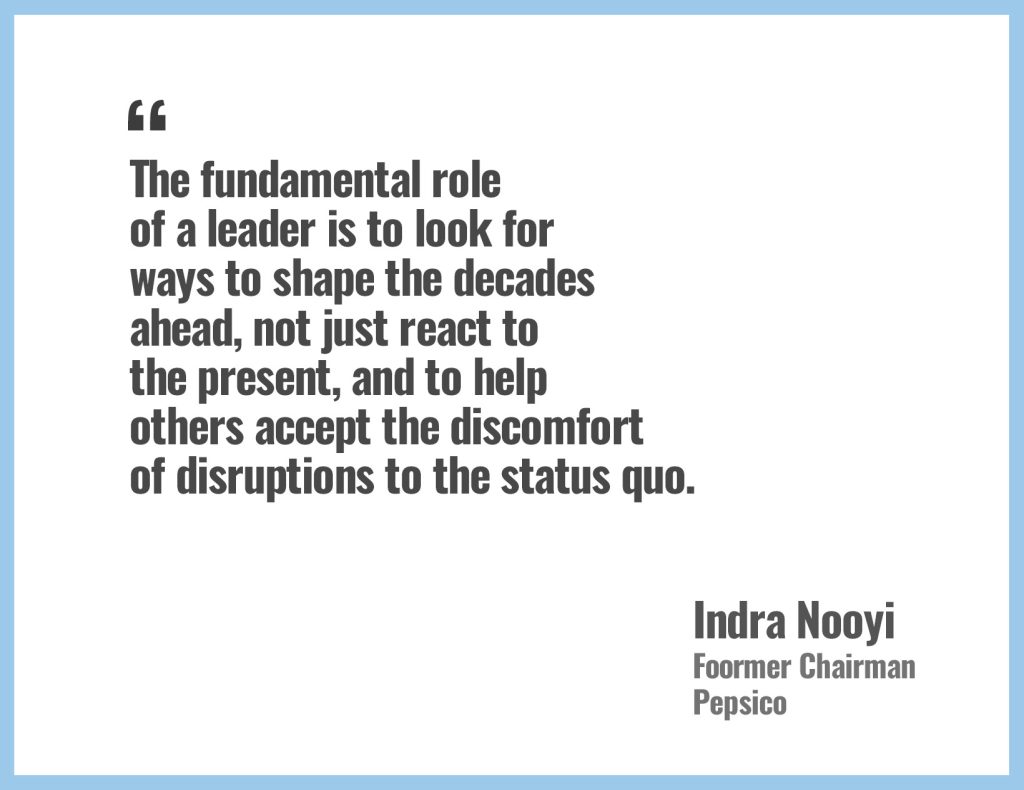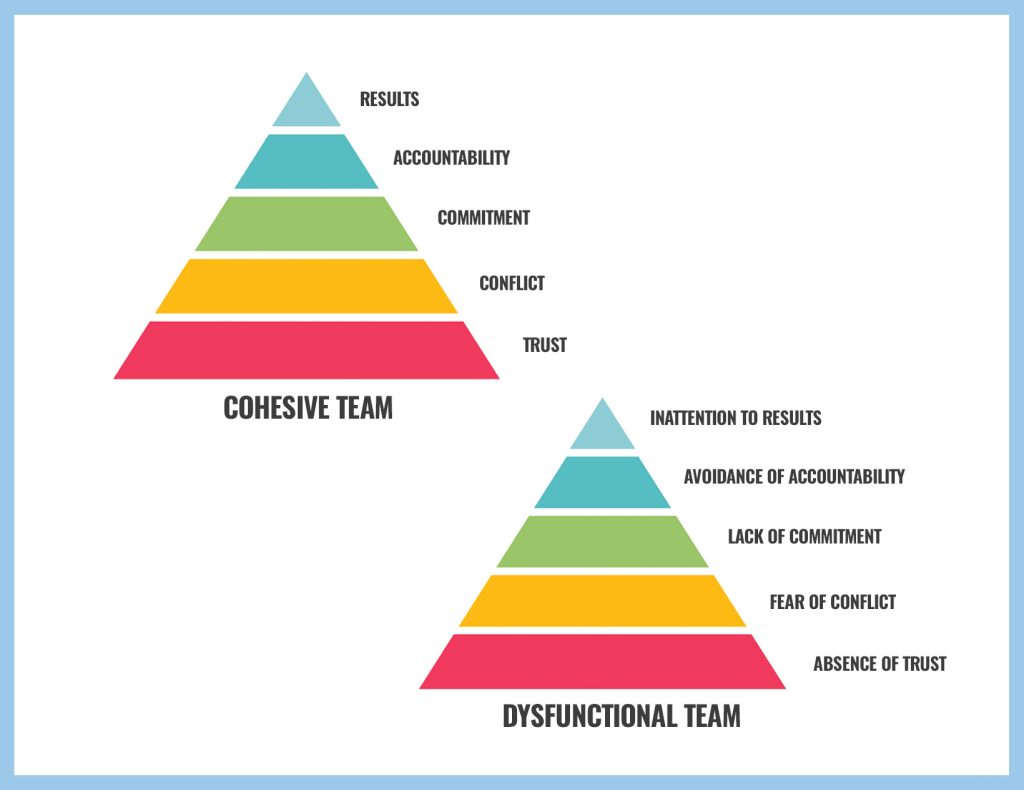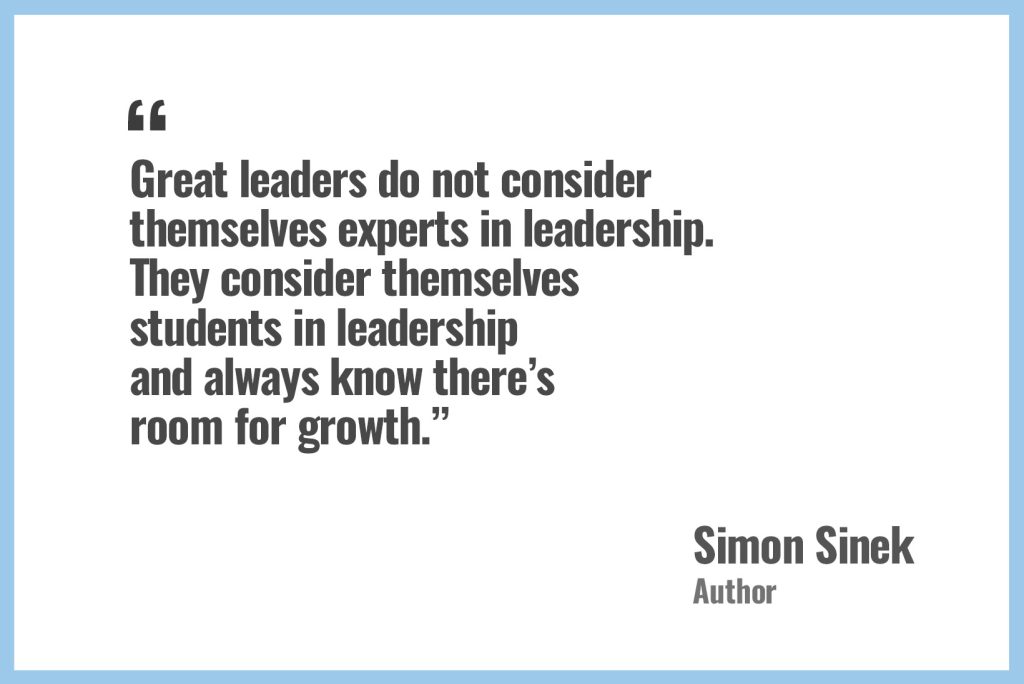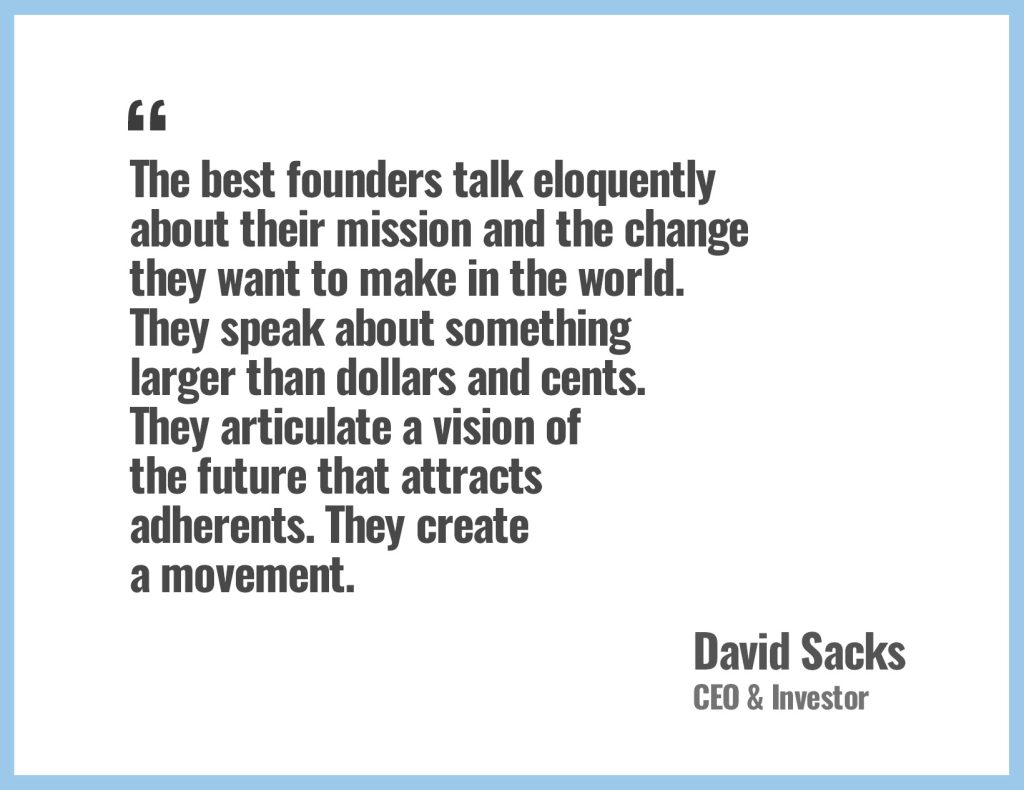There’s a lot of rhetoric around good leaders, describing them in terms of inspirational visionaries making world-changing decisions that shape a better future.
But you only have to consider the terrible deeds committed throughout history under the command of infamous world leaders to realise that effective leadership is powerful but not always positive.
A person in a workplace leadership position can either:
- Motivate team members to work hard, excel and obtain a sense of fulfilment, or
- Negatively influence employees to become disengaged, adversarial, or even act unethically.
Leadership is important in life and work because, without leaders, we are unable to define clear visions and translate them into reality.
(Related: How To Improve Team Performance).
What Is Leadership And Why Does It Matter?
Leadership is influencing and maximising team members’ collective efforts to attain a common goal.
You’ve probably heard the phrase “like herding cats” or that other animal-inspired metaphor, “you can lead a horse to water, but you can’t make it drink”.
Expert Tip.
Uniting people around a shared vision – as opposed to one of many others available – is the daily challenge of great leadership.
Effective leaders achieve this not by being “nice” or “understanding” but by aligning team members’ individual motivations with the organisation’s wider high-level objectives.
As William H.C. Prentice points out in his classic essay “Understanding Leadership“, leaders must learn two basic lessons to be successful:
- People are complex. Apart from carrots and sticks, people respond to patriotism, self-doubt, need for recognition and many other emotions.
- People are different. One team member may crave growth through feedback and be frustrated by the leaders’ inability to provide it, while another team member may view any form of feedback as a threat to their self-esteem.

5 Characteristics Of Effective Leadership.
The latest trend among leadership gurus is to neatly divide leaders into “toxic” and “non-toxic” varieties, encouraging you to be the latter.
In their minds:
- Effective leadership encourages employees to grow and achieve personal goals as a by-product of contributing to organisational objectives.
- Toxic leadership relies on power imbalances, manipulation or force of personality to pressure and coerce others.
Of course, this is a gross, unhelpful oversimplification (see Prentice’s rule #1 above).
Most conflict between leaders and subordinates leaves at least one party blaming the other for “toxic” behaviour.
(Related: Why Is Emotional Intelligence At Work So Vital?)
For instance, a CEO (let’s call him John) lets his VP of Growth (we’ll call her Susan) know that sales figures need to improve. Susan reacts defensively.
- Both parties feel disrespected and misunderstood, spending days sharing victim-villain stories that paint their own perspective in a favourable light to any colleague who will listen.
- John scolds his “stubborn” and “immature” direct report, while Susan accuses John of “controlling” and “unsupportive” behaviour.
The ability to prevent and untangle situations like these is one of the hallmarks of a successful leader.
Expert Tip.
Instead of falling back on paradigms that cast someone as “toxic”, I suggest you study Patrick Lencioni’s classic Five Dysfunctions of A Team, which has helped thousands of leaders create high-performance teams.

Above: Lencioni examines why effective teams are rare and provides step-by-step instructions for eliminating dysfunction.
What Is The Role Of A Leader?
The job of leaders is fivefold:
- Define a larger cause.
- Articulate the problem better than anyone else.
- Build a team capable of attacking the status quo.
- Hold the team accountable.
When the company hits obstacles, leaders are responsible for driving change.
Changing economic environments, like Australia’s slip into a per-capita recession combined with a high-interest-rate environment prompt business leaders to focus on business fundamentals.
However, throughout your career, you may take on informal leadership positions because you see an opportunity for improvement or feel responsible for meeting a particular outcome.
(Related: How To Write An Employee Reference Letter).
So, you rally colleagues behind your cause to ensure things get done.
Leaders do not always have:
- A leadership title.
- Official authority.
- The admiration of others.
- A charismatic or persuasive style.
People operating quietly in the background to nudge and enable others, without taking credit or being recognised, are also leaders.
(Related: How To Showcase Leadership Skills On Your Resume).
What Is Your Leadership Style?
In a recent conversation with academic and author Adam Grant about leadership skills we need to build, author Simon Sinek said:

In exploring and growing your leadership capabilities, you’ll need to draw on different aptitudes and approaches depending on the situation.
Four common leadership styles include:
| Transactional leadership | The old ‘carrot or stick’ dichotomy relies on rewards and punishments as the primary tools for shaping behaviour. This approach fails to recognise the complex drivers of human behaviour, limiting a leader’s ability to inspire discretionary effort. |
| Democratic leadership | This style involves gaining feedback from everyone to help guide decisions and influence through collaboration and consensus. It suits situations where you have fewer time pressures and can benefit from collective guidance. |
| Transformational leadership | Deep-seated change and innovation are the crux of this approach. Transformational leaders aim to build a more creative, stimulating and optimistic work environment where employees work towards a vision. |
| Servant leadership | Leaders use this style to create a caring and welcoming organisational culture. By empowering others and forgoing personal glory, servant leaders influence through being accessible, helpful and kind. |

What Are The Benefits Of Strong Leadership?
Analysis of previous research found that up to 40% of the variability in team morale, performance and critical organisational behaviours (positive and negative) can be attributed to the actions and attitudes of managers and leaders.
When leaders do their jobs well, companies experience:
1. Better Morale And Engagement.
People can become disillusioned due to being overwhelmed, poor clarity and trust, and a lack of growth opportunities or appreciation for their effort.
Important!
By putting daily tasks in the context of a ‘big picture’ goal, leaders can create a working environment where everyone feels connected to the mission.
Human beings crave recognition, safety, autonomy, connection and fairness.
Employees look to leaders for the reassurance and empowerment they need to feel like:
- They’re valued as human beings with emotions, not just productive vessels.
- They have the opportunity and means to apply their talent, with help available when needed.
- Hard work hard pays off and results in recognition and rewards.
2. Healthier Organisational Culture.
Leaders have a disproportional impact on organisational culture because they strongly influence what work gets done, and how it gets done.
They also define company values through their actions and words.
Important!
In a positive workplace culture, employees’ personal goals and values align with organisational goals and values. The employee is empowered to take calculated risks, make mistakes and learn from them.
In-depth research by consulting firm McKinsey found that just four behaviours accounted for 89% of leadership effectiveness, critical to organisational health and a positive culture.
These behaviours are:
| Solving problems effectively | Gathering information and weighing it to effectively handle a team dispute, ensuring people feel heard and matters are dealt with fairly. |
| Operating with a strong results orientation | Helping teams understand why different goals matter and prioritise high-value work (rather than simply efficiency for efficiency’s sake). |
| Seeking different perspectives | By actively seeking your team member’s feedback as a core leadership habit, so they feel safe to speak up and contribute ideas. |
| Supporting others | By taking an interest in the welfare of the people in your team, being trustworthy and helpful, trusting others, and intervening to prevent conflict. |
(Related: How To Build A Positive Work Culture).
3. More Agile Workplace.
Embracing change, continuously looking for improved ways of working, and taking action even when the outcomes are unclear are core strengths of good leadership.
Expert Tip.
Purposeful leaders are willing to challenge tradition and outdated practices. They’re focused on driving change rather than preserving the status quo.
That takes courage, a growth mindset, and a clear understanding of the company’s vision — rather than a desire to ‘fit in’ or avoid dealing with the difficult repercussions of change.
Expert Tip.
A recurring leadership problem is “Happy Talk”, a basic failure to admit problems until too late. You can’t get out of a crisis until you admit you’re in one. “All I have to offer is blood, toil, tears and sweat” – Winston Churchill
(Related: Ultimate Guide To Delegation Of Authority).
What Are The Risks Of Bad Leadership?
Ineffective leadership can reverse many of the gains you’d expect from great leadership. This includes:
- Reduced morale and disengagement.
- Higher rates of burnout and employee turnover.
- Lower productivity and performance.
Additionally, leadership that role models a “winner takes it all” attitude based on high-pressure targets can potentially lead to employees taking shortcuts or behaving recklessly or dishonestly in order to avoid failure.
What’s The Impact Of Poor Leadership Skills?
Leaders failing to provide psychosocial support at work is a key cause of burnout — according to the 2023 Australian Workplaces Survey.
The survey found almost two out of three Australian workers felt burned out at work, with people experiencing higher levels of burnout having lower levels of performance and being twice as likely to be considering switching jobs.
Top hazards for workers included:
- Lack of role clarity.
- Poor change management.
- Inadequate reward and recognition.
- Low job control.
- Unachievable job demands.
How Does Leadership Differ From Management?
Well-known management consultant and author Peter Drucker said, “Management is doing things right; leadership is doing the right things.”
A manager is responsible for organising, delegating, monitoring and reporting on a team’s work.
This often involves keeping people accountable to the rules, policies and goals a company’s leadership sets down.
Meanwhile, a leader’s job is to see the vision for the future, and remind the team of their role in it.
| Leader | Manager |
|---|---|
| Authority based on values & vision | Authority based on position |
| Focused on vision and mission | Focused on processes |
| Custodian of the big picture | Custodian of structure |
| Focus on financial performance | Focus on cash management |
| Develops the business’ 3-5 year strategy | Executes strategy by developing operational plans |
| “From the heart” | “From the mind” |
Expert Tip.
Managers can lose the respect of their subordinates if they lack leadership skills. In these situations, employees ignore managers’ directions and turn to unofficial ‘leaders’ among their peers, whose influence undermines the manager further and derails the company’s broader objectives.
Final Thoughts On Improving Your Leadership Skills.
Any meaningful pursuit in life will demand that you become an exceptional leader.
Whether you’re a junior employee, an entrepreneur or already in a leadership role, your success will depend on your ability to move people.
Instead, effective leaders must rely on their emotional intelligence, strong communication and decision-making skills, as well as critical thinking ability to cultivate the desire in each employee to bring their best self to work, and find meaning in the company’s mission.
Excellent leadership is rare, but it is a skill you can learn.
Jody







Saranne Segal says:
Great article on handling workplace conflict! One factor I think should deepen the discussion further is the role of cultural differences within workplace conflicts. Many times what seems like a value conflict may actually turn out to be a cultural misunderstanding, especially in very diverse teams. Acknowledging and respecting these cultural nuances can really mean the difference between resolution and disputes and establishing an inclusive environment.
Additionally, it may help to mention the value of psychological safety. When employees feel they can speak up without repercussion, that alone can end low-level conflicts and foster more open channels of communication. This, of course, fits right in with your notes of how respect and empathy are key parts of conflict management. Thanks for illuminating an important topic and sharing your insight.
Steven McConnell says:
Thanks Saranne, you make valid points.